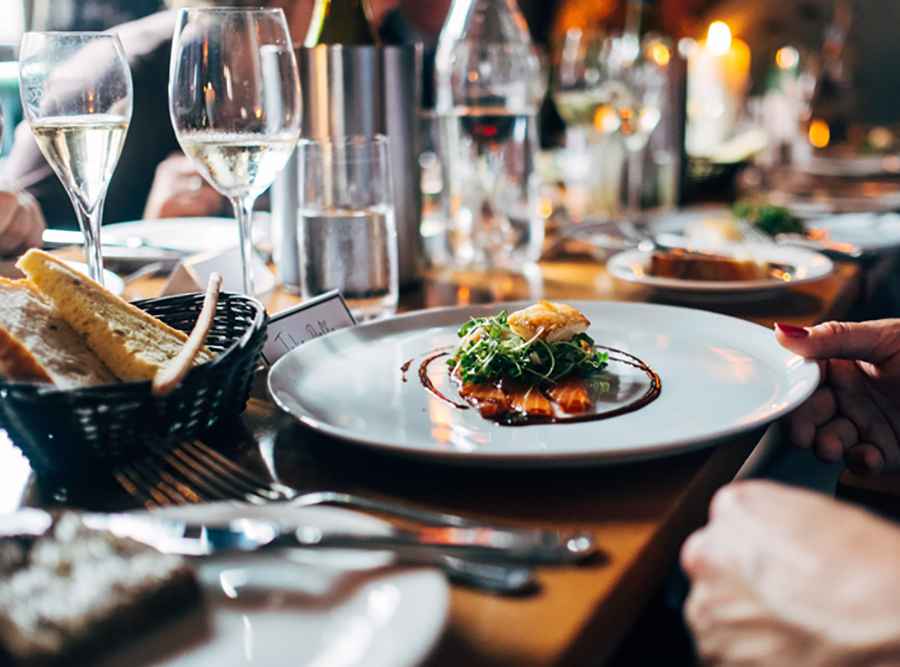What Is the Role of European Cuisine in Cultural Understanding?
European cuisine stands at the crossroads of history, tradition, and innovation, serving as a delectable gateway to the diverse cultures that shape the continent. Beyond the rich aromas and tantalizing flavors, European gastronomy plays a pivotal role in fostering cultural understanding on a global scale. This article delves into the multifaceted aspects of European cuisine, exploring how it acts as a cultural ambassador, connecting people and contributing to a deeper appreciation of the rich tapestry of European heritage.

Culinary Diversity Reflecting Cultural Tapestry
With its mosaic of nations and ethnicities, Europe boasts a culinary landscape as varied as its languages and landscapes. From the robust flavors of Mediterranean dishes to the hearty fare of Northern Europe, each region's cuisine reflects its unique history, geography, and cultural influences. When you write a cultural essay, you will need a reliable essay citation generator to help you with your work. Exploring European culinary diversity allows individuals to embark on a journey through time, tracing the evolution of recipes that have been passed down through generations and unveiling stories of migration, conquests, and trade that have shaped each dish.
Breaking Bread: A Universal Language
Food has an unparalleled ability to transcend linguistic and cultural barriers. The act of breaking bread together is a universal human experience that fosters a sense of community and shared humanity. European cuisine, with its emphasis on communal dining, encourages individuals to gather around the table, share stories, and forge connections. Whether savoring tapas in Spain, enjoying a French family meal, or partaking in European food and wine, the shared meal experience opens the door to understanding and appreciating cultural nuances.
Preserving Culinary Heritage: A Living Tradition
European cuisine serves as a custodian of cultural heritage, preserving traditional recipes, cooking methods, and culinary rituals. From the meticulous preparation of pasta in Italy to the art of cheese-making in France, these culinary practices are not mere recipes; they are living traditions that carry the weight of history and identity. Engaging with European cuisine allows individuals to become time travelers, experiencing flavors that have endured centuries and connecting with the customs that define a particular culture.
Gastronomy as Cultural Ambassador
European cuisine is a global ambassador, inviting people from different corners to enjoy its richness. The rise of culinary tourism has seen individuals embarking on gastronomic journeys to savor the authenticity of European dishes at their source. Through this, not only do travelers experience the flavors, but they also gain insights into the cultural contexts that have shaped each culinary creation. Experiencing culture in Europe becomes a tangible expression of a nation's identity, a language spoken through the art of cooking and presentation.
Fusion and Innovation: A Reflection of Contemporary Europe
While rooted in tradition, European cuisine is not stagnant. It evolves, adapts, and embraces innovation. The culinary landscape of Europe reflects the continent's dynamic history, including periods of conquest, exploration, and globalization. The fusion of flavors and ingredients from different regions and cultures creates a contemporary narrative that speaks to the world's interconnectedness. Exploring modern European cuisine unveils not only the flavors of today but also the ongoing dialogue between tradition and innovation.
Culinary Diplomacy: Building Bridges Through Food
In recent years, culinary diplomacy has emerged as a powerful tool for building bridges between nations and fostering cross-cultural understanding. European embassies and cultural institutions often use food to showcase their heritage, inviting people from different backgrounds to experience the flavors of their home countries. Culinary events, festivals, and collaborations bring together chefs, food enthusiasts, and curious minds, creating cultural exchange spaces beyond language and politics.
Final Thoughts
In conclusion, European cuisine is far more than a delightful array of dishes; it is a conduit for cultural understanding. Through culinary exploration, individuals can embark on a sensory journey that goes beyond taste and aroma, revealing the intricate threads that weave together the diverse cultures of Europe. Whether savoring a classic French bouillabaisse or indulging in the simplicity of Italian bruschetta, each dish becomes a gateway to a world of stories, traditions, and shared experiences.
Author's Bio - Mark Wooten
Mark Wooten is a seasoned travel writer, culinary explorer, and cultural enthusiast dedicated to unraveling the intricate connections between food, tradition, and global understanding. With a background in Gastronomy, he has become a trusted voice in the world of food, seamlessly blending a passion for exploration with a deep appreciation for cultural diversity. With a career spanning 5 years, Mark has carved a niche as a sought-after travel writer.